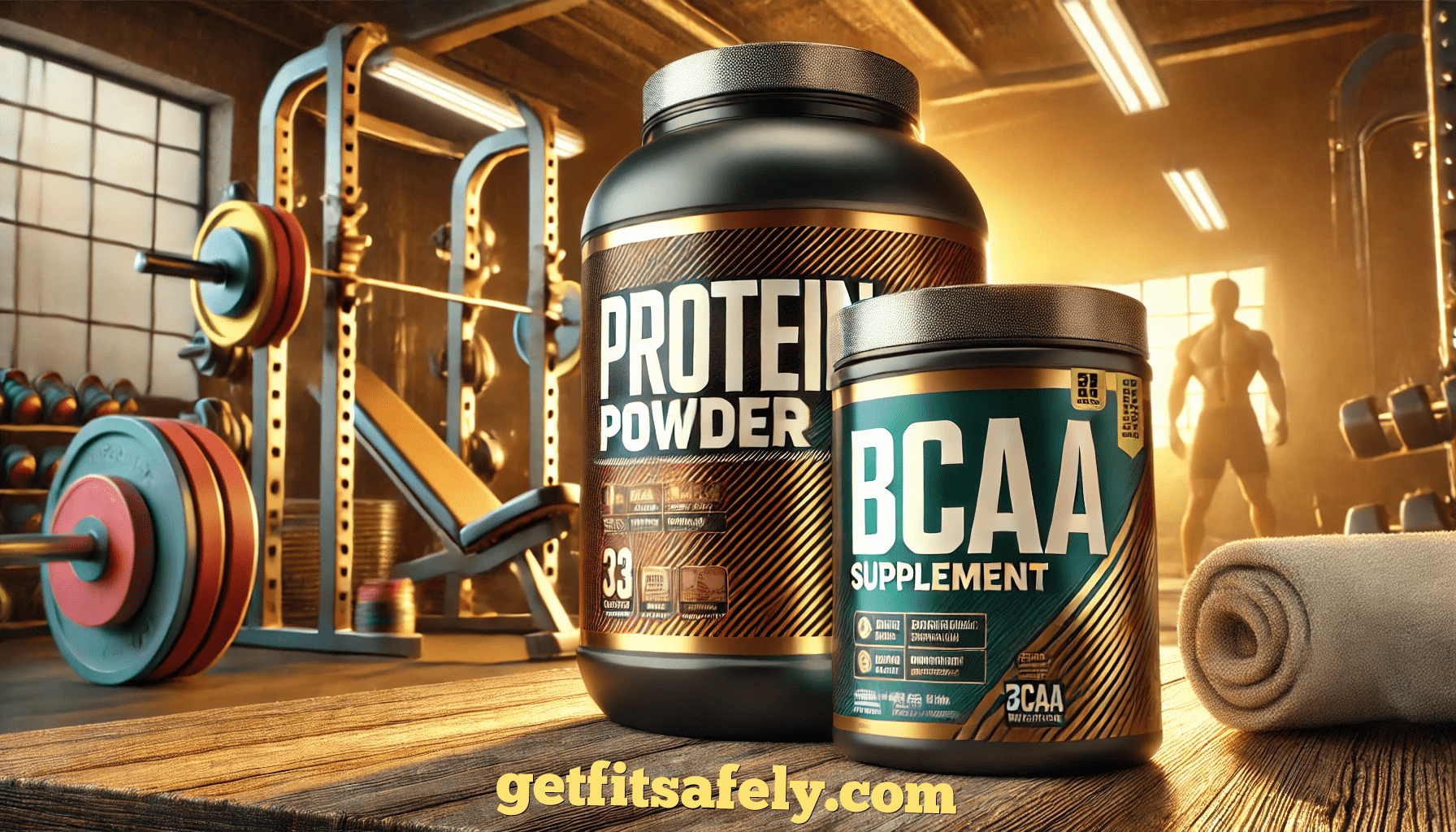Let’s be honest—if you’re anything like me, you’ve probably got your protein game on lock.
You’re hitting your daily targets with protein shakes, grilled chicken, maybe even the occasional protein bar that actually tastes good.
Then, out of nowhere, someone mentions amino acid supplements, and you start wondering, “Wait a second, do I really need this too, or am I just throwing money down the drain?”
I get it.
I’ve been there, scratching my head over whether to add another supplement to my routine.
So, let’s cut the confusion and get into whether amino acid supplements are necessary if you’re already crushing your protein intake.
| When to Take Both | When to Skip One |
|---|---|
| 🏋️♂️ Intense Workouts | 🌱 Beginners |
| Perfect for heavy lifting days to boost recovery and muscle growth. | Newbies might achieve great results with just whey or BCAAs alone. |
| 🔥 Cutting Phase | 🍽️ Balanced Diet |
| Helps maintain muscle while shedding fat efficiently. | If your diet already meets your protein needs, one supplement might suffice. |
| 🏃♀️ Endurance Training | 💸 Budget Conscious |
| Sustains energy and reduces fatigue during long cardio sessions. | Combining both can be pricey without significant added benefits. |
| 💪 Advanced Athletes | 🛌 Adequate Rest |
| Maximizes performance and recovery for those pushing their limits. | Ensuring you get enough rest might negate the need for both supplements. |
What Are Amino Acids, Anyway?

Alright, let me break it down without getting all science-y on you.
Amino acids are the building blocks of protein—think of them as the Lego pieces that make up the muscle you’re working so hard for.
So when you’re tearing into that grilled chicken or sipping on your post-workout shake, your body is busy breaking it down into amino acids.
These little guys help repair and rebuild your muscles after you’ve crushed it in the gym.
There are 20 amino acids, but nine of them are what we call essential—meaning your body can’t make them on its own.
You’ve gotta get them from food.
Yep, no shortcuts there.
| Amino Acid | Type | Function |
|---|---|---|
| Leucine | Essential | Stimulates muscle protein synthesis. |
| Isoleucine | Essential | Involved in muscle repair and energy regulation. |
| Valine | Essential | Supports muscle metabolism and tissue repair. |
| Lysine | Essential | Assists in calcium absorption and supports immune function. |
| Methionine | Essential | Plays a role in metabolism and detoxification. |
| Phenylalanine | Essential | Precursor to neurotransmitters like dopamine, aiding in mood regulation. |
| Threonine | Essential | Important for collagen production and fat metabolism. |
| Tryptophan | Essential | Precursor to serotonin, involved in mood and sleep regulation. |
| Histidine | Essential | Aids in tissue repair and production of hemoglobin. |
| Asparagine | Non-Essential | Involved in protein synthesis and nervous system metabolism. |
| Glutamine | Non-Essential | Supports immune function and gut health. |
| Alanine | Non-Essential | Involved in energy production, especially during exercise. |
| Arginine | Non-Essential | Important for blood flow and nitric oxide production. |
| Aspartic Acid | Non-Essential | Plays a role in energy production and metabolism. |
| Cysteine | Non-Essential | Assists in detoxification and antioxidant production. |
| Glutamic Acid | Non-Essential | Important for brain function and metabolism. |
| Glycine | Non-Essential | Supports collagen formation and joint health. |
| Proline | Non-Essential | Key for collagen synthesis and tissue repair. |
| Serine | Non-Essential | Involved in metabolism and immune function. |
| Tyrosine | Non-Essential | Precursor to hormones and neurotransmitters. |
What Do Amino Acids Do?
Amino acids are like your body’s maintenance crew.
You might not see them in action, but they’re the ones making sure everything stays in tip-top shape.
Whether you’re pumping iron, going for a long run, or just recovering from a killer workout, amino acids are behind the scenes, repairing your muscles and managing your energy.
They also keep your immune system strong.
But here’s where it gets interesting—amino acids aren’t just about muscles.
They help produce the hormones and enzymes that keep your body running smoothly, so you can crush your workouts and feel awesome doing it.
I don’t know about you, but after learning how essential amino acids are, I’ve definitely started paying more attention to my protein intake.
Are You Getting Enough from Protein?
If you’re already getting a solid amount of protein from a variety of sources like lean meats, eggs, dairy, or plant-based options, chances are you’re covered in the amino acid department.
Most complete proteins (think animal-based sources) give you all the essential aminos your body needs.
Even if you’re on a plant-based diet, mixing things up with beans, grains, and nuts can still get you all nine essentials.
So, Do You Really Need Amino Acid Supplements?
Alright, here’s the straight-up truth: *probably not*—as long as you’re crushing your protein goals.
If you’re already getting enough protein (roughly 0.8 grams per pound of body weight, give or take), amino acid supplements aren’t something you really need to lose sleep over.
Think of it like this: if your gas tank is already full, why keep adding more fuel, right?
But let’s be real, there’s always a “but” in fitness, isn’t there?
There are a few times when amino supplements might actually be worth considering, and I’ll admit, I’ve been tempted to grab them myself in certain situations.
When Amino Acid Supplements *Could* Be Useful:
You’re on a Low-Protein Diet
Maybe you’re cutting calories and, let’s face it, protein sometimes takes the hit.
In this case, amino acid supplements (especially BCAAs) could come in handy to fill the gap and keep your muscles from saying “bye-bye.”
Your Workouts Are Intense
If you’re going all out with those double sessions or super-long endurance workouts, your body might appreciate some extra amino acid love to help speed up recovery.
Trust me, I’ve been there, and recovery can make or break your next workout.
Plant-Based Dieters
Getting all the essential amino acids from plant-based foods can be a bit of a puzzle sometimes.
Vegans and vegetarians know the struggle!
If you’re not mixing up your protein sources, a supplement might help cover all your bases.
Think of it as insurance for your muscles.
Fasted Training
If you’re the type to hit the gym on an empty stomach (hello, fasted cardio warriors!), a little extra amino support could stop your muscles from breaking down while you’re getting your sweat on.
I know, fasted training sounds hardcore, but it has its place!
Is It Dumb to Use Both?
Honestly?
Not really—it depends on your goals.
If you’re smashing through two-a-day workouts, training on an empty stomach, or trying to hit a specific macro count, there could be a place for both.
But if you’re just hitting your daily protein needs with food and shakes, adding amino supplements might be more of a nice-to-have than a need-to-have.
In my experience, sticking to protein powder gets the job done for most people.
But to be fair, if you’ve got a specific reason for adding amino acids (and a bit of extra cash to burn), go for it.
RELATED:>>> Is It Possible to Gain Mass with Protein Powder Without Hitting the Gym?
The Bottom Line
If your protein game is strong, amino acid supplements probably aren’t something you need to worry about.
Your body’s already getting what it needs to repair and build muscle from the meals you’re crushing every day.
That said, if you find yourself in a situation where your diet is lacking or your workouts are next-level intense, amino supplements could be a handy tool in your fitness arsenal.
At the end of the day, it’s all about your goals and how you’re feeling.
There’s no reason to throw your hard-earned cash at supplements unless they’re truly going to boost your performance or recovery.
Save the money for something you’ll really enjoy—like, I don’t know, a new pair of gym shoes?
Now, what about you—do you use amino acid supplements?
Let me know in the comments below!


